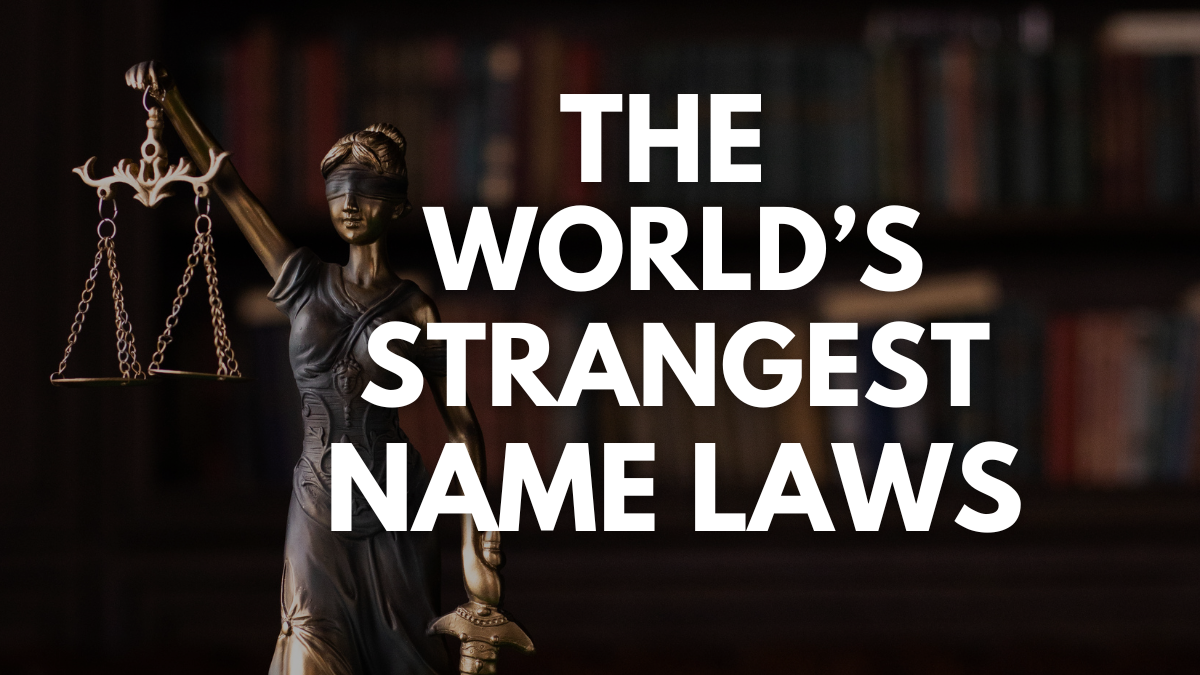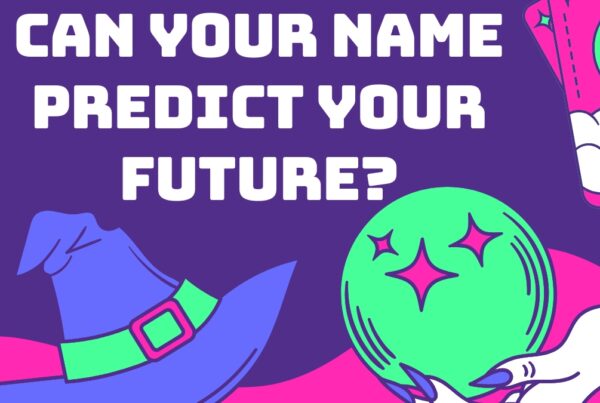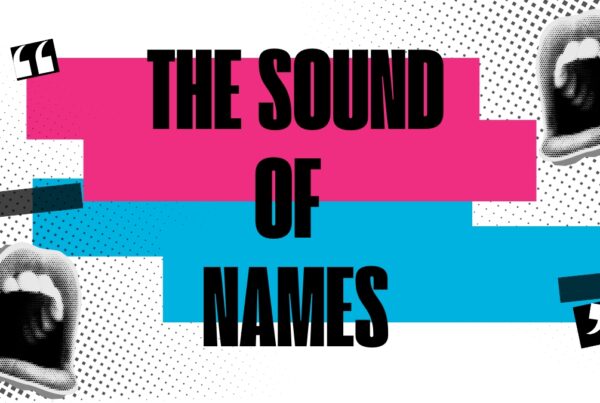Why Do Name Laws Exist?
Did you know that some places have rules about baby names? Some names are totally fine, but others are not allowed. Some places want to prevent parents from choosing silly, unkind, or confusing names for their children. These regulations help in protecting children from abuse or future difficulties. This article will discuss some of the most peculiar name laws globally. Prepare yourself to hear some truly strange names that were banned!
Imagine if a person named their kid “Toaster” or “Banana.” It may sound amusing, but it could complicate the child’s life. Some names can also be misleading, such as those that include numbers or symbols. For this reason, some governments ensure that names for newborns are simple to pronounce, spell, and understand. Some places require names to match with their culture, therefore prohibiting foreign names.
Although many parents appreciate unique names, there are boundaries to their creativity. While some countries maintain extensive lists of approved names. No matter if you are in favor of name laws or not, they can be quite fascinating. Here are some of the most unusual name laws from various countries!
Countries That Ban Certain Names
Germany: No Names That Are Too Weird
Germany has a very strict regulations concerning baby names. A name must indicate whether a baby is a boy or a girl. This implies that a child’s name must indicate their gender. As an illustration, naming a baby “Alex” requires clarification of whether it is an abbreviation for Alexander or Alexandra.
It is also important that names do not pose a risk to a child’s well-being. This means that parents are unable to choose a name that could cause their child embarrassment or stress later in life. Names that are considered offensive, overly unique, or difficult to pronounce may be rejected by the German government.
It’s also not acceptable to give a baby a completely absurd names, such as “Laptop” or “Banana.” In Germany, names that are common objects, brand names, or surnames used as first names are not permitted. This is to ensure that names mirror genuine first names.
Some names that got rejected in Germany are:
- “Osama Bin Laden” – This name was rejected because it was linked to a terrorist.
- “Stone” – Officials said this was not a real first name.
France: No Names That Might Embarrass a Child
In France, it is required that baby names serve the child’s best interest. Officials have the authority to reject names that are too unusual, strange, or could lead to embarrassment. The aim is to stop names that could result in bullying or challenges for the child. A judge can determine whether a name is inappropriate and require parents to choose a different one.
A well-known instance occurred in 2015 when some parents tried to name their daughter “Nutella.” The judge rejected it, reasoning that Nutella is a well-known chocolate spread and that the child could become the target of teasing. Rather, the parents were informed that they could name her “Ella.”
Other banned names in France:
- “Mini Cooper” – Parents wanted to name their baby after the car!
- “Prince William” – This name was not allowed because there is already a real Prince William.
- “Fraise” (which means “strawberry”) – The court thought kids would tease her.
Denmark: Only Certain Names Allowed
Denmark holds one of the most restrictive naming laws globally. Parents are required to select a name from the government’s official list of approximately 7,000 approved names. For a name not included in the list, they will need to obtain special permission if they wish to name their child that. The government will review the request, and in certain instances, a panel of experts will determine if the name is acceptable.
These strict rules are intended to protect children from names that could be embarrassing, offensive, or hard to spell and pronounce. According to Danish officials, names should be straightforward and identifiable in order to blend into society without leading to confusion.
Some names that were NOT allowed:
- “Anus” – Yes, someone actually tried to name their baby this!
- “Monkey” – The government said no way.
- “Pluto” – This name was also not allowed.
Portugal: Follow the Naming Rules
When it comes to naming babies, Portugal has very strict regulations. Parents are required to choose a name from an authorized list, and names that are unusual or of foreign origin are typically illegal. The government wishes names that align with Portuguese culture and language, resulting in the rejection of names that appear overly foreign or possess unconventional spellings.
A major rule is that first names have to be spelled in accordance with traditional Portuguese conventions. This means that common English names like “Kevin” or “Ashley” are not allowed because they do not fit with Portuguese traditions. A family with foreign roots may still have to select a Portuguese-style name for their child.
Banned names in Portugal:
- “Thor” – They said no because it’s a god’s name.
- “Jimmy” – Nicknames are not allowed as real names.
- “Ashley” – The government says it’s not a proper Portuguese name.
New Zealand: No Numbers or Titles in Names
Names that contain numbers, official titles, or anything that may be considered offensive are not permitted in New Zealand. To ensure names are simple and user-friendly, the government has guidelines that prohibit names deemed excessively odd or complicated.
Some banned names:
- “4Real” – Parents wanted this name, but numbers aren’t allowed.
- “King,” “Princess,” “Justice” – Titles like these are not allowed.
- “Talula Does The Hula From Hawaii” – A girl was given this name, but a judge made her change it.
Strange Name Laws in the United States
The U.S. does not have one rule for baby names. Each state decides its own rules. Below are some:
California: No Symbols or Emojis
California enforces strict regulations surrounding the allowable and prohibited components of a baby’s name. Under state law, names can only include the 26 letters of the English alphabet. This implies that there are to be no numbers, special symbols, or punctuation marks. Parents are also prohibited from using emojis in their child’s name, regardless of whether they believe it would be fun or one-of-a-kind.
One of the well-known cases featured Elon Musk and Grimes, who chose the name “X Æ A-12” for their child. The name was accepted in some locations, but California mandated a change due to the special symbols. Later, they modified the name to “X AE A-Xii” to comply with legal standards, substituting the special characters with letters.
In California, names cannot have numbers, symbols, or emojis. That means:
- “John#1” is not allowed.
- “😊Smith” would also be rejected.
Tennessee: No Religious Titles
In Tennessee, there is an unexpected law regarding baby names: Parents are prohibited from using religious titles such as “Messiah” as first names. A judge’s 2013 ruling that a baby could not be named “Messiah” brought this law into the spotlight. The judge stated that “only Jesus Christ has earned the title of Messiah.” This forced the parents to give their child a new name.
Nonetheless, a considerable number of individuals expressed disagreement with the judge’s ruling, arguing that parents should have the freedom to choose any name for their child. The ruling was subsequently overturned, permitting “Messiah” once more. Nevertheless, there are still those who debate the legality of using religious titles as names.
Names such as “Bishop,” “Pope,” and “Saint” have also been the subject of debate in Tennessee. Although they are allowed from a technical perspective, they sometimes lead to debates. While some individuals are of the opinion that religious names should only be used for their intended purpose, others feel that they form unique and powerful choices for baby names.
Texas: No Special Characters
Texas has a rule that may come as a surprise to some: baby names cannot include special characters, symbols, or accents. This implies that names such as “José” should be written as “Jose” on official documents. Although Spanish names often include accents, Texas birth certificates do not permit them.
This rule exists because official systems in Texas do not support special characters. Due to the fact that the software used to save birth records only acknowledges basic letters, names with accent letters or other special characters cannot be accurately entered. For numerous families, this has caused frustration particularly for those whose names contain accents in their original spelling.
Texas does not allow special marks like accents. That means:
- “José” has to be written as “Jose.”
- “Chloé” has to be “Chloe.”
The Weirdest Names That Were Banned
Some parents have tried to name their kids really weird things. Here are some of the strangest names that were banned:
- “Brfxxccxxmnpcccclllmmnprxvclmnckssqlbb11116” – This was a name parents in Sweden picked. They said it should be pronounced “Albin.” The government said NO.
- “@” – Parents in China wanted to name their baby this, but it was not allowed.
- “Robocop” – A Mexican couple tried to name their child after the movie character.
- “Metallica” – A Swedish couple wanted to name their baby after the band. The government said no.
Why Do These Laws Exist?
To Protect Kids from Being Teased
Imagine going to school with a name like “Nutella” or “Anus.” Other kids would probably make fun of that name. Some laws exist to stop parents from giving their kids names that could embarrass them.
To Keep Names Simple for Paperwork
If someone’s name had emojis or symbols, it might not fit on a form. Names like “John#1” could cause problems for banks, schools, and ID cards.
To Respect Culture and Tradition
Some places, like Portugal and Denmark, want names to match their language and culture. They do not want names that seem too foreign or out of place.
What Will Happen to Name Laws in the Future?
With the increasing global connectivity, name laws may change. As cultures blend, many nations are becoming more and more sensitive to unique names. As more people travel and move to different countries, they also bring along varying naming traditions. This might result in a decrease of limitations on baby names going forward.
Technology could also be an important factor. Currently, some countries prohibit special characters in names due to limitations of their computer systems. However, as technology advances, governments may revise their systems to include accents, symbols, or even emojis. This might facilitate parents’ ability to name their children precisely as they wish.
However, certain rules may remain unchanged. A lot of governments still aim to protect children from names that might lead to problems. There is a chance that regulations prohibiting offensive or embarrassing names will continue. Countries such as Germany and France may still review baby names to ensure their appropriateness.
Some countries are making their name laws more relaxed. For example, Iceland used to ban the name “Zoe” because “Z” was not in their alphabet. Now, they allow it. Other countries still have very strict rules.
Conclusion: Are Name Laws Fair?
Some individuals believe that parents should have the freedom to name their children as they please. Some people think that banning certain names is necessary to keep children safe. The discussion regarding name laws covers more than just creativity, it also involves culture, identity, and tradition.
Many families consider a child’s name to be very personal. It may reflect one’s tradition, pay honor to beloved individuals, or represent special significance. Because they restrict personal expression, strict name laws can seem unfair. Some parents claim that they deserve to be able to choose their child’s name without any involvement from the government.
On the other hand, name laws are in place for a purpose. Governments aim to shield children from names that might result in teasing, confusion, or legal issues. Imagine attempting to sign your name on official papers if it contained numbers or special characters! In certain instances, name laws prohibit names that could be considered offensive or damaging.
Ultimately, name laws revolve around achieving balance. While allowing creativity, they must also ensure that children are not given names that could lead to difficulties later on. With the evolution of societies, name laws may adapt accordingly, either becoming more relaxed or remaining strict in specific locations.
What do you think? Should parents have complete freedom in naming their children, or are name laws necessary to keep things fair and reasonable? While first names often spark debate, last names have a fascinating history of their own. Ever wondered how surnames came to be? Explore the origins of last names and how they shaped identities throughout history in How Were Last Names Created?




